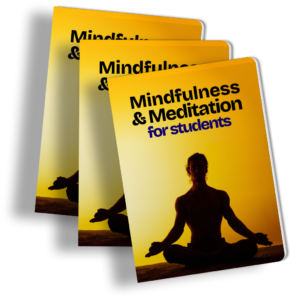In our fast-paced world, it’s easy to feel constantly pulled in a million directions. Work deadlines loom, thoughts race, and stress becomes a persistent companion. But what if there was a way to cultivate calmness amidst the chaos? Enter mindfulness and meditation, powerful tools for achieving inner peace and enhancing well-being.
Mindfulness: The Art of Awareness
Mindfulness is a state of being fully present in the moment. It involves acknowledging your thoughts and feelings without judgment, focusing on your senses, and observing your surroundings with a sense of curiosity. Imagine yourself savoring a cup of tea. Instead of simply going through the motions, mindfulness encourages you to appreciate the warmth of the mug in your hands, the aroma of the tea, and the subtle flavors on your tongue. By bringing your attention to the present moment, you disconnect from the worries of the past and anxieties of the future.
Meditation: Training Your Mind for Mindfulness
Meditation is a practice that cultivates mindfulness. There are many meditation techniques, but most involve focusing your attention on a single point, such as your breath, a mantra (a repeated word or phrase), or a physical sensation. Inevitably, your mind will wander – that’s perfectly normal! The key is to gently guide your attention back to your chosen focus point without judgment. With regular practice, meditation becomes a way to train your mind to be less reactive and more accepting of your thoughts and emotions.
Unlocking the Benefits
The potential benefits of mindfulness and meditation are vast. Research suggests they can help reduce stress, anxiety, and depression. They can also improve focus, creativity, and emotional regulation. Practicing mindfulness can even lead to better sleep and healthier relationships.
Getting Started on Your Mindfulness Journey
The beauty of mindfulness and meditation lies in their simplicity. You don’t need any special equipment or location to get started. Here are some tips:
- Find a quiet space: Even a few minutes of uninterrupted time can be beneficial.
- Focus on your breath: Sit comfortably and pay attention to the sensation of your breath entering and leaving your nostrils.
- Acknowledge your thoughts: When your mind wanders, gently bring your attention back to your breath.
- Be kind to yourself: Don’t get discouraged if your mind wanders – that’s part of the process.
- Start small: Begin with just a few minutes of meditation each day and gradually increase the duration as you become more comfortable.
Mindfulness and meditation are not about achieving a state of perfect emptiness. They’re about cultivating awareness, acceptance, and inner peace. So, take a deep breath, quiet your mind, and embark on a journey of self-discovery. You might be surprised by the positive impact it has on your life.

